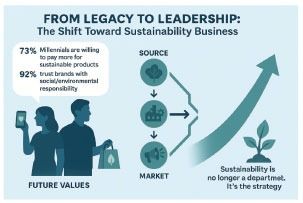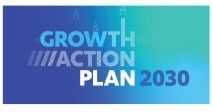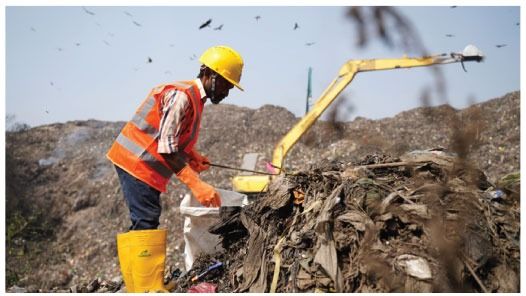- info@ficci.org.bd
- |
- +880248814801, +880248814802
- Contact Us
- |
- Become a Member
- |
- |
- |
- |
- |

Recently, I came across a new concept called "Sustainomy." As highlighted in a 2024 TIME Magazine article, Sustainomy offers a bold reimagining of economic growth that integrates prosperity, people, and the planet into a unified framework. Rather than focusing solely on markets and profits, Sustainomy calls for creating inclusive, collaborative ecosystems prioritising long-term sustainability. This model reinforces the imperative for businesses to shape-not merely survive-the future.
This articulation of sustainability aligns with the urgent need for change in today's complex global business landscape. The role of business is undergoing a fundamental transformation, with expectations from stakeholders and consumers no longer limited to delivering shareholder value or essential products. It is expanding to encompass solving pressing challenges for society and the planet. Once an emerging concern, sustainability is now a defining mandate for modern leadership. Yet, in many instances, leadership is still catching up with this shift.
 A generational lens helps contextualise this evolution. Many of today's corporate leaders began their careers in the 1990s-an era marked by the advent of landlines and fax machines when sustainability was still peripheral to business strategy. Back then, the priority was awareness. Global milestones like the Rio Earth Summit or the release of An Inconvenient Truth played pivotal roles in sounding the alarm about the environmental costs of unchecked growth. These early efforts laid critical foundations. But the sustainability conversation has decisively moved forward since then. What was once a question of whether businesses should engage in sustainability has evolved into how urgently and effectively, they deliver measurable impact. The era of intent has passed. The era of accountability is here-and it is urgent.
A generational lens helps contextualise this evolution. Many of today's corporate leaders began their careers in the 1990s-an era marked by the advent of landlines and fax machines when sustainability was still peripheral to business strategy. Back then, the priority was awareness. Global milestones like the Rio Earth Summit or the release of An Inconvenient Truth played pivotal roles in sounding the alarm about the environmental costs of unchecked growth. These early efforts laid critical foundations. But the sustainability conversation has decisively moved forward since then. What was once a question of whether businesses should engage in sustainability has evolved into how urgently and effectively, they deliver measurable impact. The era of intent has passed. The era of accountability is here-and it is urgent.
Two examples: one from the challenge side and the other from the consumer side-illustrate this shift clearly.
From a challenge perspective, the impacts of climate change are no longer theoretical-they are real, widespread, and deeply felt. In the past two years, more lives were lost to heatwaves than to floods in Bangladesh a historic reversal that underlines the changing nature of climate risks. This has prompted national conversations, even among those previously disengaged from climate concerns, and raised serious economic alarms. Research indicates that every 1°C rise in temperature results in a 2% drop in productivity. In 2024 alone, heatwaves led to global economic losses exceeding USD 21 billion. These figures underscore the growing interdependence between environmental health and financial stability. Climate resilience, therefore, must be viewed not just as a corporate responsibility but as a boardroom priority.
 Conversely, the shift in consumer perception -especially among younger generations- reshapes market dynamics. Gen Z and Millennials are not only value-driven in their choices-they are values-driven. According to PwC, 73% of Millennials are willing to pay a premium for sustainable products, while 92% report higher trust in brands that demonstrate environmental and social responsibility. This significant shift in consumer behaviour means that purpose-driven brands are no longer niche-they are the future of competitiveness.
Conversely, the shift in consumer perception -especially among younger generations- reshapes market dynamics. Gen Z and Millennials are not only value-driven in their choices-they are values-driven. According to PwC, 73% of Millennials are willing to pay a premium for sustainable products, while 92% report higher trust in brands that demonstrate environmental and social responsibility. This significant shift in consumer behaviour means that purpose-driven brands are no longer niche-they are the future of competitiveness.
Yet, making any organisation, process, or product sustainable at scale is challenging. This transformation is far from a turnkey solution. For example, a legacy company like Unilever-whose core product, soap, has remained unchanged for over 130 years-must now rethink how it sources, makes, and markets its products. It must harness transformative technology and show agility to keep pace with regulatory shifts, scientific findings, and the rising expectations of consumers and communities. Sustainability is no longer a separate function-it is a strategic lens through which modern businesses must operate.

The evolving business case for sustainability is exemplified in Unilever's journey over the last two decades. In 2010, Unilever introduced the Unilever Sustainable Living Plan (USLP) with the bold ambition of decoupling business growth from environmental impact. At the time, this was considered aspirational. Yet, the outcomes were tangible. Brands that integrated sustainability outperformed the broader portfolio, and efficiencies driven by sustainable practices resulted in savings exceeding €1 billion. These outcomes challenged a prevailing notion that sustainability hinders performance. On the contrary, Unilever's strategy demonstrated that embedding sustainability enhances resilience, sharpens innovation, and strengthens growth. It's a pathway to a more prosperous future.
As global challenges intensified, Unilever redefined its approach. The launch of the Unilever Compass marked a shift from fragmented initiatives to an integrated sustainability framework anchored in three core ambitions: improving planetary health, enhancing people's well-being, and building a fairer, more inclusive society. This strategic lens extends across the value chain-from sourcing and production to consumption and post-use.
 In 2023, Unilever launched the Growth Action Plan (GAP) 2030 with a clear commitment to prioritise consumers and drive sustainability, embodying the vision to "Brighten Everyday Life for All." This ambitious initiative zeroes in on four critical areas: Climate, Nature, Plastic, and Livelihood, mandating sustainable practices throughout our supply chain. To make a more profound impact, we must approach these challenges holistically and from end to end.
In 2023, Unilever launched the Growth Action Plan (GAP) 2030 with a clear commitment to prioritise consumers and drive sustainability, embodying the vision to "Brighten Everyday Life for All." This ambitious initiative zeroes in on four critical areas: Climate, Nature, Plastic, and Livelihood, mandating sustainable practices throughout our supply chain. To make a more profound impact, we must approach these challenges holistically and from end to end.
Take our work with plastic, for example. Unilever operates with a clear vision: plastic should not return to the environment. That's why we use less plastic in packaging through reengineering, reducing, and reusing. We also invest in retail refill technology to empower consumers with convenient, sustainable choices. Yet, post-consumption waste management remains a major obstacle. This is where the next level of involvement-value chain development and adaptive change-becomes critical.

As one of the pioneering companies in Bangladesh, Unilever has piloted and scaled a municipal-backed, city-wide plastic waste management model. In collaboration with Chattogram City Corporation, UBL is facilitating the collection and processing of 10% of the city's annual plastic waste-more than the amount UBL uses. In doing so, UBL has fostered a circular value chain and an entrepreneurial ecosystem, positively impacting the livelihoods of over 3,000 waste workers. These workers have received safety training, protective equipment, appreciation awards, and even health insurance, reinforcing an enabling environment for sustainable change.
These examples exemplify how business-led initiatives can drive meaningful impact. The good news is that the industry mindset is evolving. And this transformation is not limited to the consumer goods sector. In technology, companies like Microsoft have committed to becoming carbon-negative by 2030. In finance, institutions such as BlackRock are integrating ESG metrics into investment decisions. Even in heavy industries like cement and steel, decarbonisation strategies are developed through cross-sector innovation and partnerships.
The scale of today's sustainability challenges-like deforestation, water stress, and food insecurity-requires more than isolated efforts. These deep-rooted issues demand joint solutions from a broad coalition of stakeholders. Organisations like FICCI are crucial in shaping policy, supporting small businesses, and facilitating strategic partnerships. Businesses must not only lead-they must champion change throughout the ecosystem.
The influence of Gen Z and Gen Alpha is already reshaping workplaces and marketplaces. These generations bring urgency and demand authenticity, and they are redefining leadership itself. Young professionals are stepping up within Unilever with innovation, accountability, and purpose. Sustainability is no longer an initiative-it's a mindset embedded in corporate culture.
As global value chains shift toward regenerative and responsible models, Bangladesh stands at a strategic crossroads. With its expanding manufacturing base, digital infrastructure, and entrepreneurial energy, the country has the potential to lead sustainable industrial development-not just in RMG but across emerging sectors. Realising this potential will require alignment between business ambition, government policy, and national sustainability objectives.
The first chapter of the sustainability movement was about raising awareness. That chapter is closed. The current moment demands a new kind of leadership grounded in action, driven by agility, and committed to system-wide impact.
While the case for sustainability is compelling, the path forward is complex. Companies must navigate cost pressures, shifting regulations, and competing priorities. But those who embrace this complexity-rather than shy away from it-will emerge stronger, more resilient, and more trusted.
This is not just a sustainability imperative. It is a leadership test for our generation. The future will belong not only to those who build market share but also to those who create shared value.





